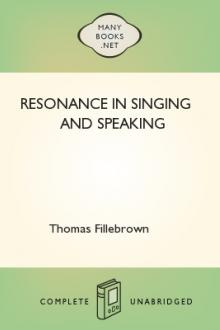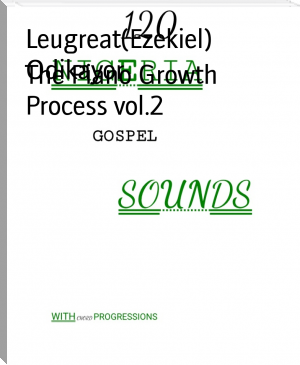Dave Brubeck - Erich von Abele (summer beach reads .TXT) 📗

- Author: Erich von Abele
Book online «Dave Brubeck - Erich von Abele (summer beach reads .TXT) 📗». Author Erich von Abele
Bluette
On the B side, Bluette
echoes some of the tenor and tense of Blue Shadows in the Street
—yet in a deeper, darker, bluer inclination. Throughout, Brubeck’s coldly classical and crystalline notes figure icy veins of assonance, when they are not coining cul-de-sacs of quietude. In keeping with the overall temper, Desmond’s alto sax in its overture and closure imbues the blue with breathy, velvety, magnetic, almost solemnly sonorous tonality underscored by Wright’s bass bowed in a gravely occult drone; while in its solo, it delves into and parses the blue with glimmers of reflectivity as pure and yet as tart as the sleekest gin. Before the end, Desmond’s alto sax engages in a counterpoint with Brubeck’s piano that accentuates the almost unearthly classicism of Bluette in turns and parts of symmetry and ice.
Charles Matthew Hallelujah
I would not necessarily include this one—an ordinarily lesser piece all told—were its roundly infectious joy not so tempting to at least call forth a note of mention. As the liner notes indicate, the song was conceived in a spontaneous burst of celebration for the birth of Dave’s son, christened Charles Matthew, and all through it brims and rings with the ecstatic pride of the parent for his child. In the energetically happy, dynamically adamant and aggressively loud chords he accomplishes in his son’s tribute, Brubeck once again shows that indeed, piano is his forte.
Far More Drums
Lest the reader be concerned that I forgot to mark Far More Drums
—the first song on side A of this album—for praise, I hereby assure him that I have merely been saving that amazing vehicle for Joe Morello’s drumming skills for last. Its impetus catapults immediately with a prototype of combination punches in 5/4 (which persists in an undercurrent of permutations from beginning to end), followed by a winsomely sunny and gratifying theme in piano that could easily be overlooked or underrated, in turn leading the way—particularly with the adroitly judicious tropes of basser piano notes discharged by Brubeck—to the long drum solo that forms the body and heart of this song.
This drum solo is simply the best ever recorded by any drummer in music history (far better than the signature solo of Morello’s career in Take Five), for which the reviewer could not err in his account by pulling out all the stops of superlatives and vernacular extravagance. In persistingly reiterative yet progressively modulating configurations, Morello caroms and batters a series of tom-toms, only tactically accented here and there by shots and smacks of the snare and rims, in alternately satisfying and reciprocally counter-intuitive concatenations—underpinned throughout by an insistent yet subtle motif of the pedal-activated hi-hat that serves to remind the close listener of the ongoing 5/4 beat otherwise seemingly flouted and trampled upon by the protracted and exponentially vehement turbulence of Morello’s solo, as he accelerates madly, yet with a method of madness, elevating percussion to concussion and beyond.
Of this quartet of albums, this is my favorite. It represents the paragon and pinnacle of the collective genius of Brubeck, Desmond, Morello and Wright.
Countdown
On a bang, it begins with its title song, Countdown
—barraging from our speakers right into our living room like a stampede of rhinos with Morello inventively pounding away on orchestral tympani. The perspicacious listener will hear Wright’s not so much walking bass as a jogging bass, its rumbling tones keeping quickly apace with the kettledrums resounding like the earth moving beneath the hooves of the rampant horde. After the throbbing tympani—switching back and forth with brief piano interjections—come booming to a seemingly anticlimactic decrescendo, Brubeck takes over with a roiling a cappela boogie woogie, whose harmonic logic winds down to a nodal culmination actuated by the trenchant splash of Morello’s crash cymbal doubling as the ride cymbal he uses to sustain the fizzing hiss of his accompaniment back with a normal drumset. As is so often the case, the brief piano solo that ensues by Brubeck is elaborated with chord changes at once thoughtful, deliberate and scintillating, with an intimation of a sad intellect—ending as suddenly as it began, with Morello’s tympani and Brubeck’s piano answering each other until the former stomps to a laborious close that rattles like a giant manhole cover spinning and losing ground to finally topple with a slam.
Eleven Four
An exceptional composition titled after its extraordinary tempo in 11/4 time, Eleven Four
wings its brightly euphonious and vernally melancholic way from the very first moment already in mid-flight, continuing to the very end Desmond’s effortless translation of the utterly unnatural eleven beats per measure into a buoyancy lighter than air and, with the greatest of ease, fleeter than a spring breeze. Morello’s concomitance on drums is understated, yet immaculate, riding out the entire song on the ride cymbal, with his pedal-operated hi-hat maintaining a base similar to the one he patented for Take Five
(as Brubeck similarly repeats his bass note and chord paradigm from that song) and later for Castillian Drums
—employing one unassumingly ingenious switch that only the careful listener will pick up.
Why
A nicer, niftier ditty in the anthology of jazz is likely never to have been written to compare with Eugene Wright’s Why
. (I have a hunch the question mark, normally presumed appropriate for that adverb, was purposefully excluded from the title: a delightful omission.) Wright, the underrated bassist for Brubeck’s quartet, has concocted a modestly elegant and unobtrusively dainty medium for him to go to town—within the snugly composed confines of staying cool as a cucumber—nimbly fingering up and down the fat strings of his upright bass, as Morello helps paint that little town with his brushwork on snare and hi-hat, and Brubeck fills in easygoing coloraturas of leisurely chords and collops all along the way, at one point hitting a high, diamond-thin triad that rings at the right instant like a priceless glass bell.
Castillian Blues
A shrewdly formulated Latin jazz arrangement in which a repeating circle of interesting chord changes provides for its palmy navigation in 5/4, with consummately crack contributions from Desmond, weaving his delectable poesy in woodwind in and around Brubeck’s complementary chords, and from Joe Morello, skillfully deploying his tom-toms with the stylistics that evidently influenced him greatly at the time, as is manifested in Far More Drums
(from the previous album) and Castillian Drums (from side B of the present album), which the liner notes from Time Further Out indicate were partially inspired by his exposure to Maori folk music, but which it seems to me draw also from Latin and African percussion as well as from Morello’s own genius. Also to be noted about this song is the way the marriage of piano and alto sax gladdens the heart with their players’ characteristic, and singular, commingling of blue melancholy and sunny felicity.
Castillian Drums
This isn’t just a vehicle for Morello’s drums—it's a veritable motor vehicle accident on the freeway with a ten-car pile-up orchestrated by some berserk yet perfect divine being. It ranks up in the stratosphere with Far More Drums.
Collectively considered, these two are arguably the best drum solos in all musical history. I tend to vacillate on which of the two I deem to be number one. No matter: the best drum solo that exists out there, by any other drummer, aside from these, is perforce to be relegated below them to third status.
Before we get to the drum solo, the overture of piano and alto sax is noteworthy for its captivatingly meticulous effervescence, followed by a seemingly unremarkable but in truth fascinating piano solo that prefigures some of the style of clotted notes and serried arpeggios Brubeck will more intensely exploit in his next album, Time Changes
(more about that later). At the end of his piano solo, Brubeck subsides through a trope of assuagingly machine-gunned chords run through a type of circle of fifths, and right after the last chord is struck—artfully fusing staccato and sostenuto—Morello segues by a sudden transition of his ride cymbal frequency, from one sizzling tinniness to another, which in turn signals his embarkation onto a protracted tom-tom solo, only here and there augmented by the odd hi-hat (either pedalled, Take Five
-style, or hit open-and-shut).
This convolves no ordinary tom-tom solo, but one with Latin and African overtones as well as bouts of rapidity charged with a flamenco momentum for which “Castillian” seems an apt descriptor, using the device of certain tom-toms tuned unusually loose, endowing them with a deep and bouncy, almost spongy, quality—conducive to a peculiar groaning sound made, one conjectures, by the intensely pressured drag of the drumstick head over the drum skin, somewhat similar to the dull “moaning” sound conga drummers employ by rubbing their palm heels or thumb edge across the conga drum skin. One of the many feats starring in this drum solo is a patch where Morello somehow manages to sustain a snare-drum roll while simultaneously thumping ominously reverberating, diagonally rhythmic formations on a series of two or three deeply tuned tom-toms, before finally wrapping it up with pinpoint integration, leading with the smoothest suddenness back to the piano refrain—and the two of them ending on a charmingly succinct conclusion.
Miscellaneous Tunes
Again, I am loathe to leave any of the songs of this compendium unacknowledged, and when I do so—as with Fast Life
(notable for some deliciously pertinent and clever rimshots from Morello), Three’s A Crowd
(somehow, indefinably conjuring the rain-odorous slopes of green Hawaii) and Danse Duet
(another example of sophisticated jazz with a wonderful moment of the sun glinting off the windshield of a suburban Sunday drive in a nice big car)—it doesn’t mean they are not good songs; it only means they don’t rise quite as cream to the top. For example, I just can’t leave unmentioned the touch by Morello in the last mentioned, Danse Duet
: while he remains laid back with his suave brushes throughout Brubeck’s solo, he intrudes one particular tom-tom & crash cymbal combination that is so spot on, it bypasses the listener’s ear to satisfy his groin with a zing.
Waltz Limp
These two among the miscellany on side B, however, remain to be more fully praised. I’ve noted before the penchant in some Brubeck songs for a mélange of sadness and brightness. Waltz Limp
leans toward the sad part of that paradox, suffused with a minor or mixolydian mode as it unfolds mellifluously through the alto sax and piano solos, and upborne by the deeply contented and tangibly agreeable paradigm maintained by Eugene Wright on the upright bass—with the few strategic variations





Comments (0)